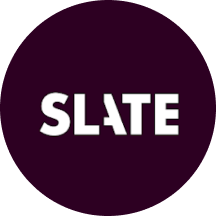The Trump administration is contemplating new restrictions on Iranian diplomats during the upcoming United Nations General Assembly, which begins on September 22. This follows the denial of visas for Palestinian leader Mahmoud Abbas and his delegation to attend the high-level meeting.
According to an internal State Department memo, the proposed restrictions could also affect delegations from Sudan, Zimbabwe, and potentially Brazil. Brazil has traditionally held a prominent role at the UN gathering, with its president typically being the first world leader to address the assembly.
The potential measures would further the Trump administration's ongoing crackdown on visas. This includes a comprehensive review of existing visa holders and those seeking entry for the UN meeting. Iranian diplomats already face significant limitations in New York City, but one proposal under consideration would prohibit them from shopping at wholesale stores like Costco and Sam's Club without prior approval from the State Department.
These wholesale stores have become popular among Iranian diplomats, as they offer access to products that are otherwise unavailable in Iran due to economic sanctions. The memo did not specify when or if the shopping ban would be implemented, but it mentioned that the State Department is also exploring rules that could impose conditions on memberships in wholesale clubs for all foreign diplomats in the U.S.
For Brazil, it remains unclear whether any visa restrictions would impact President Luiz Inácio Lula da Silva or lower-ranking members of the delegation. Lula has been a target of criticism from President Trump, particularly regarding the prosecution of former President Jair Bolsonaro, who is accused of attempting a coup.
In contrast, Syria's delegation will experience fewer restrictions. A waiver was issued last week, allowing them to travel to the UN without the limitations that have been in place for over a decade. This change aligns with the Trump administration's efforts to strengthen ties with Syria following the ousting of President Bashar Assad.
The memo did not detail potential restrictions for the delegations from Sudan and Zimbabwe. The State Department has not yet commented on the matter, and both the Iranian and Brazilian UN missions have not responded to requests for comment.

 America News
America News

 CNN
CNN New York Post
New York Post The Hill
The Hill Slate Politics
Slate Politics Aljazeera US & Canada
Aljazeera US & Canada